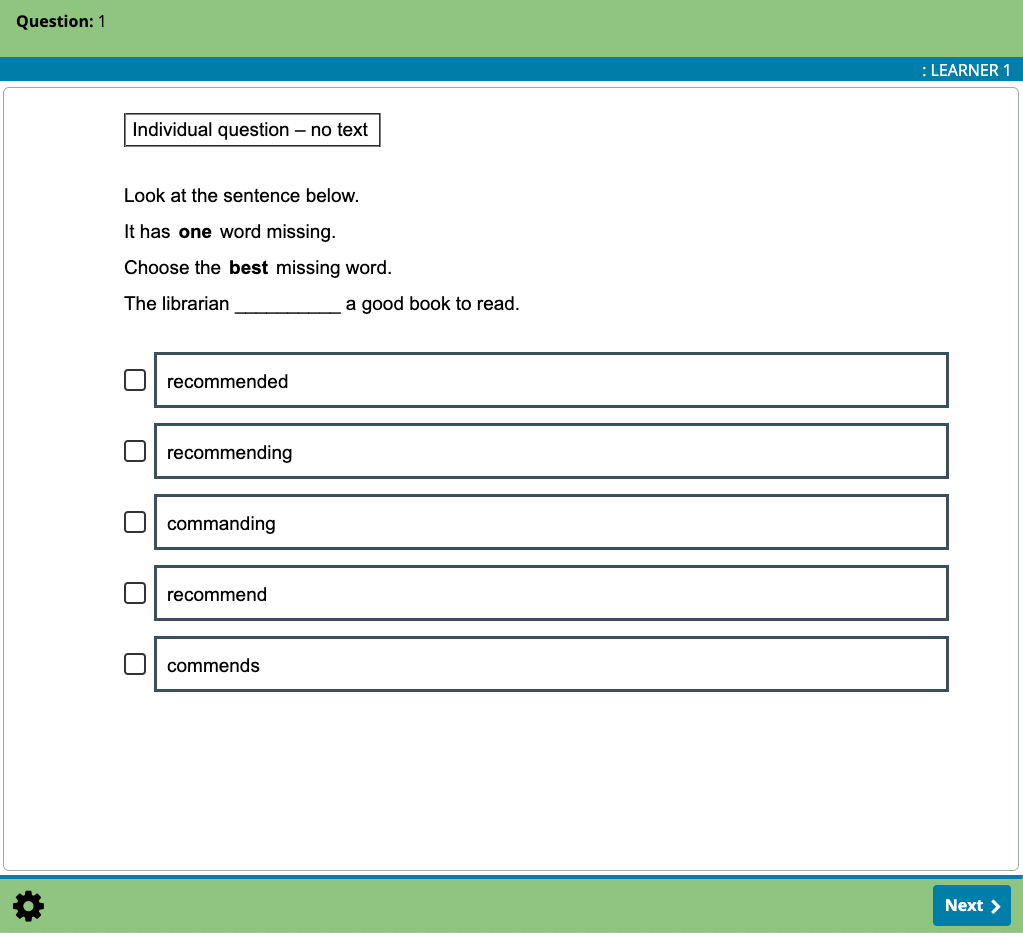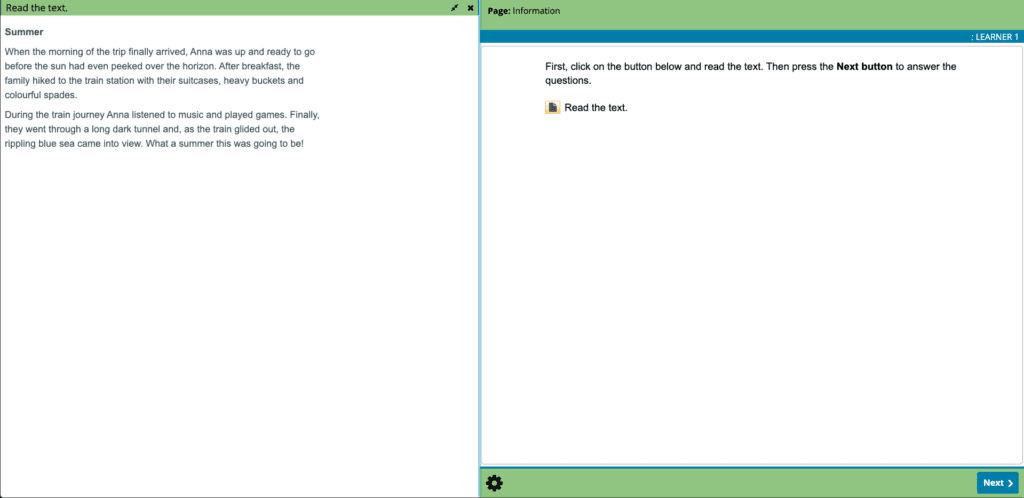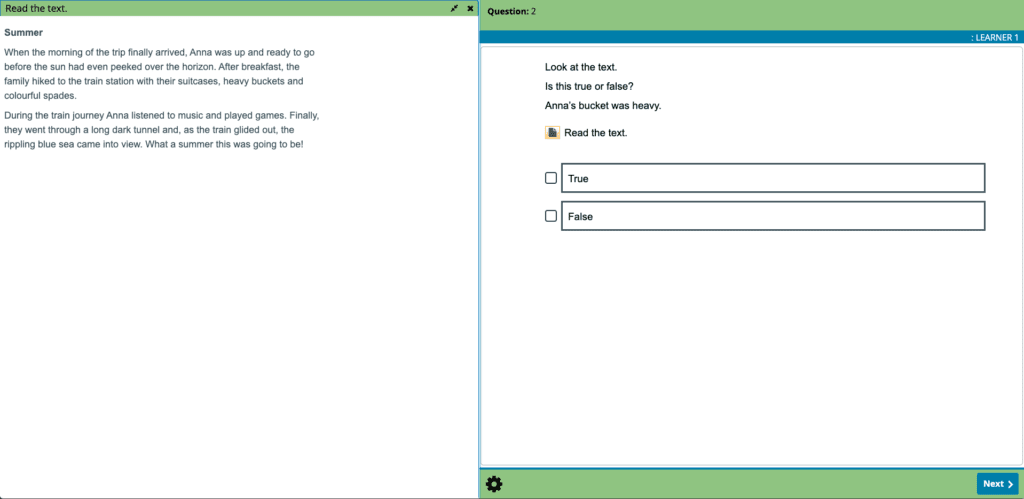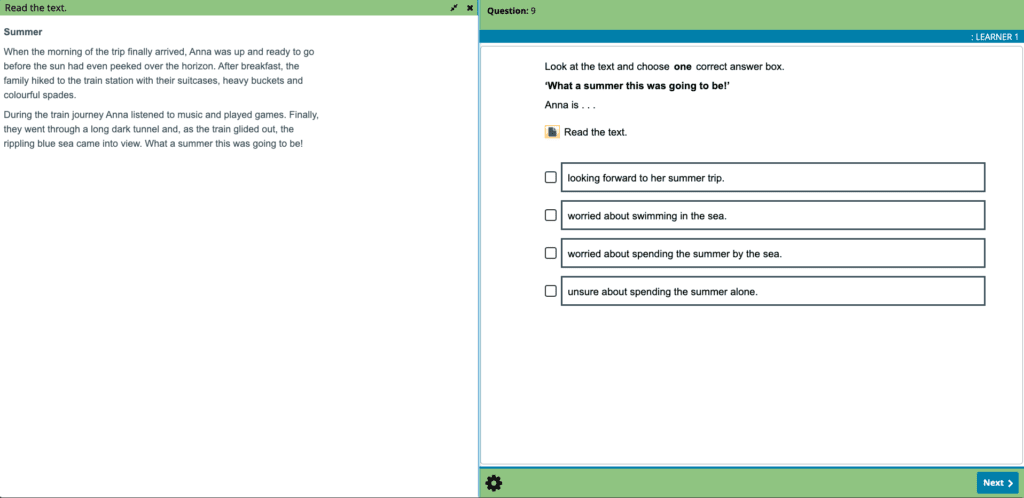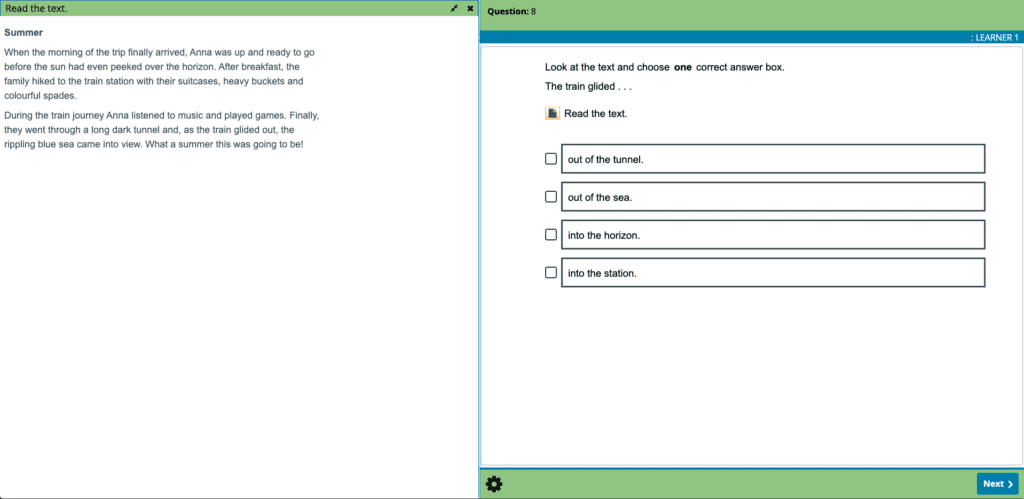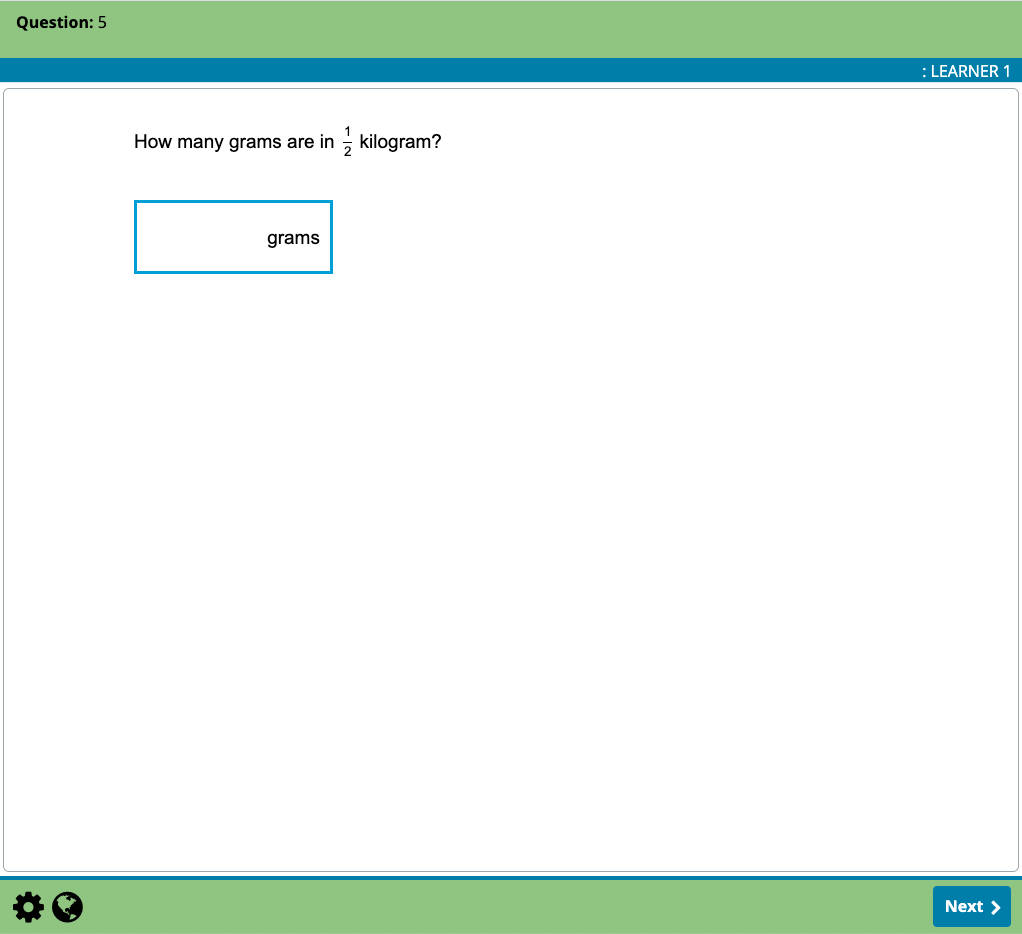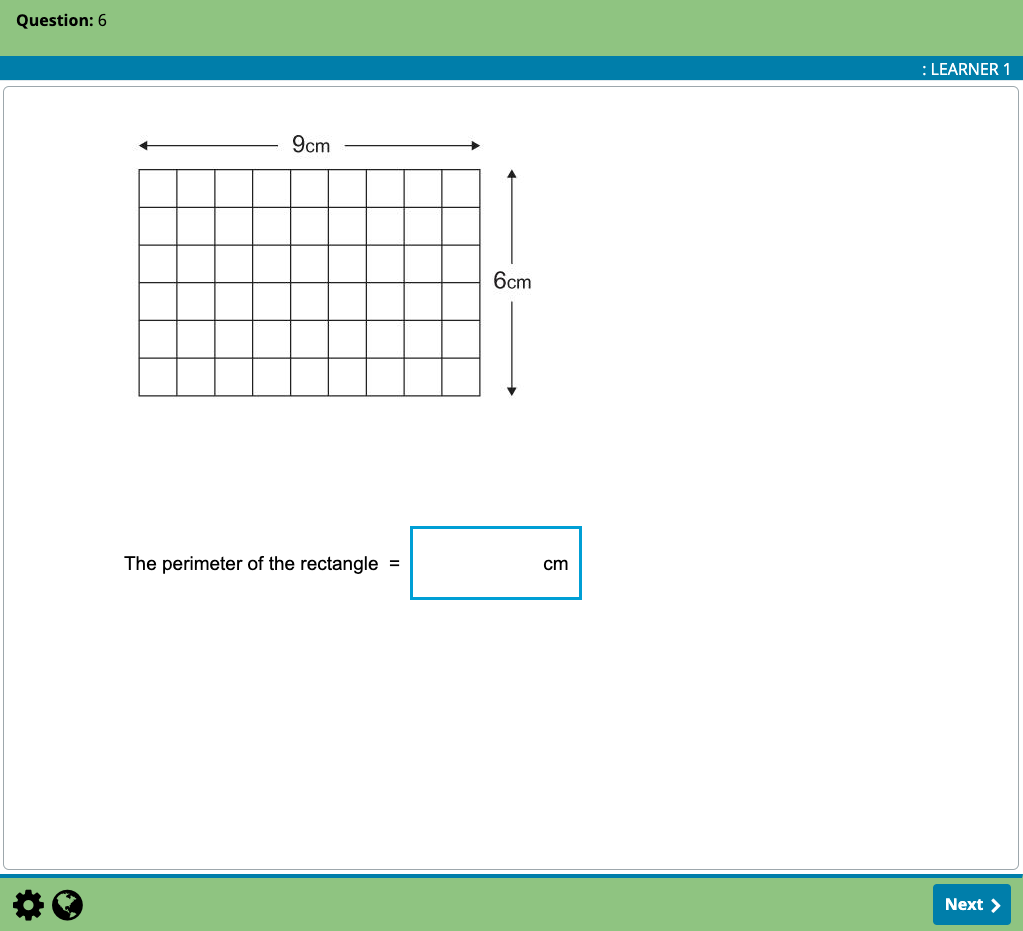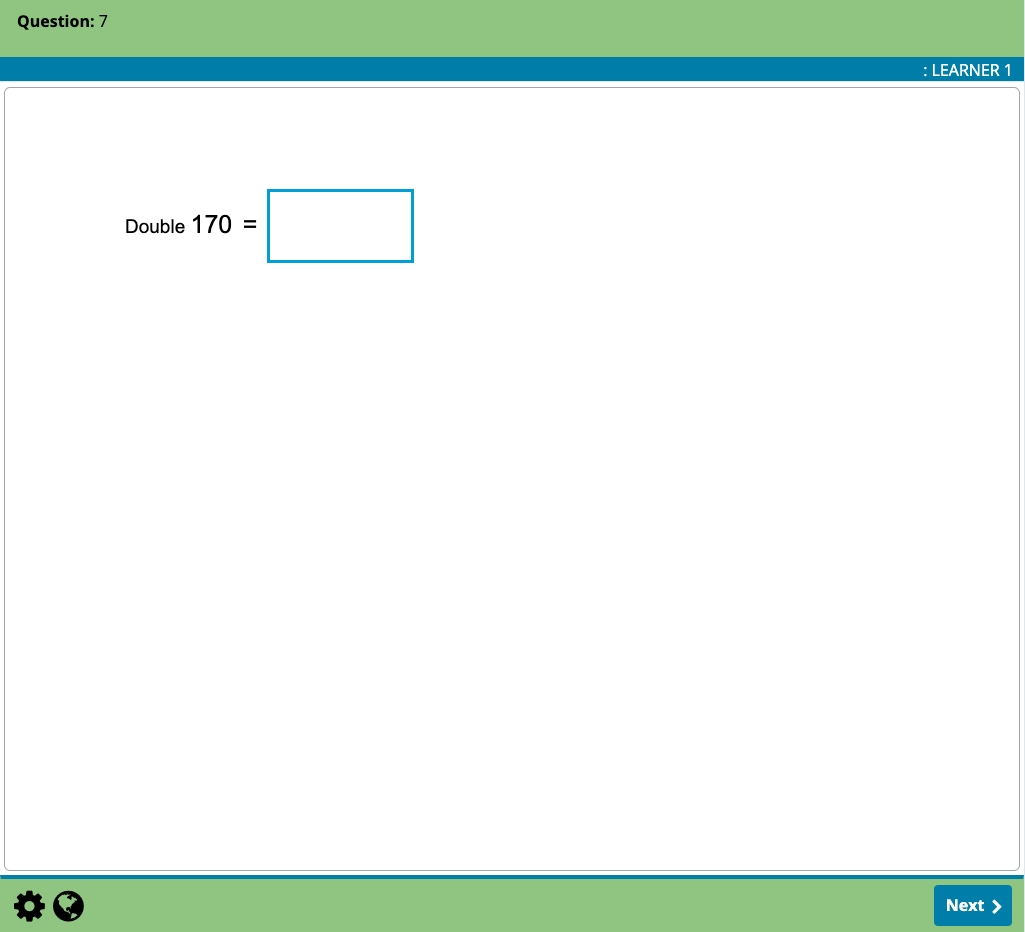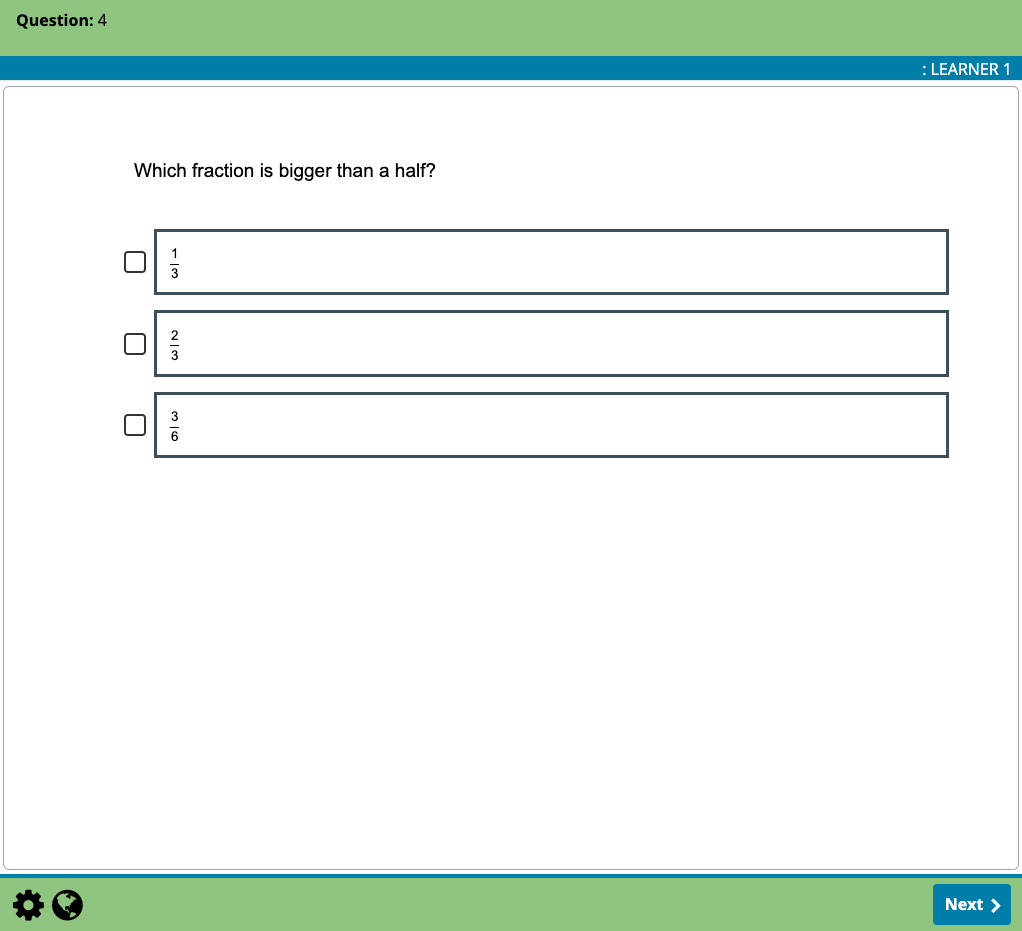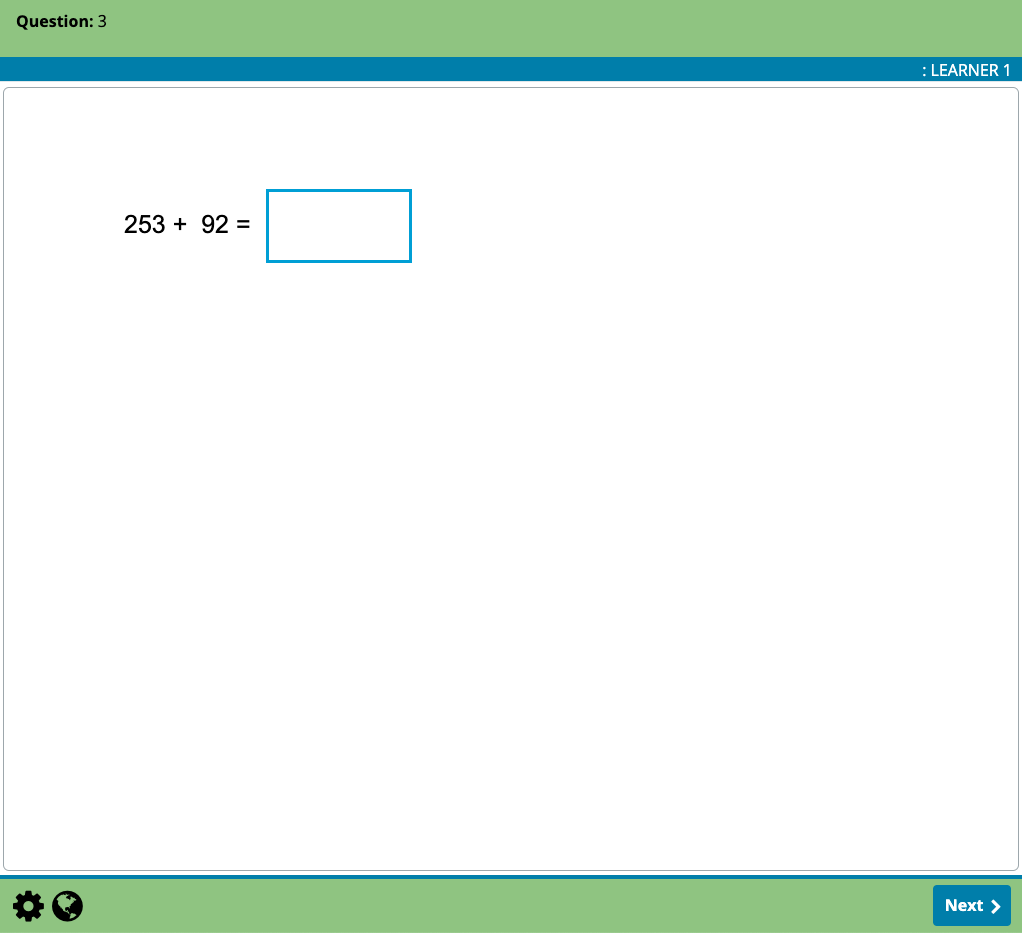Helping your child succeed in literacy and numeracy through personalised, supportive online assessments.
Online Adaptive Assessments
Wales Personalised Assessments

What Are They?
The **Wales Personalised Assessments** are annual online assessments in **reading**, **numeracy (procedural and reasoning)** for learners in Years 2 to 9. They are designed to support each child’s learning by identifying strengths and areas for development.
They adjust to your child’s responses in real-time, helping to give a more accurate picture of their progress.
Why Are They Important?
Tracks Progress
Shows how your child is developing in key areas over time.
Supports Individual Needs
Helps teachers personalise learning based on each learner’s needs.
Simple & Digital
Easy-to-use online platform that’s engaging and adaptive.
How Can Parents Support?
– Talk positively about the assessments with your child
– Encourage reading and problem solving at home
– Don’t worry about ‘preparing’ — they’re not tests
– Speak to your child’s teacher if you have questions
Need More Info?
Visit the official [Department for Education and Skills Wales website](https://learning.gov.wales) or speak with your child’s school for more guidance.
Personalised assessments are online assessments of learners’ skills in reading and numeracy. They are taken by pupils in Years 2–9 in schools in Wales.
There are currently two assessments: Numeracy (Procedural) and Reading.
From 2021 there will also be an online assessment for Numeracy (Reasoning).
Procedural Maths Assessment
The procedural test measures skills in things like numbers, measuring and data. Pupils are able to use a small whiteboard/piece of paper to jot down workings out as they complete the assessment. You can see a sample of the questions by scrolling through the images.
Click the magnifying glass to see full screen.
When are they taken?
Assessments can be taken at any time during the school year. Schools can decide on the time that they wish to have the information on their learners’ skills in order to plan teaching, learning and progression.
Your child will take the reading and numeracy assessments at least once during the school year. At St. Julian’s Primary, children usually sit the assessments in May/June. The assessments are also available to schools for an optional second use within the school year so that they can see how learners are progressing.
How can I help my child to improve their reading and numeracy skills?
Getting involved in your child’s learning while at home and out and about can make an enormous difference to their progress. Any of the following will be a huge help.
- Using numbers when shopping or planning trips, or when looking at football scores, times of TV programmes, budgeting, etc.
- Sharing activities that involve reading and numeracy, such as cooking, playing board games, watching or playing sport, writing e-mails, map reading, etc.
- Talking about words and numbers you come across in everyday life such as signs in your community or news articles.

